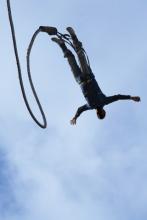The WAQ program is one of many recent military initiatives aimed at supporting the mental health needs of servicemen and women, including periodic health assessments, postdeployment health assessments within 30 days of returning from deployment, and reassessments in 3-6 months for every soldier to screen for mental health problems, Dr. Ritchie said.
Also, suicide prevention initiatives, provider resiliency training, reunion and reintegration programs, campaigns to reduce the stigma associated with mental health care, and the implementation of telehealth services in the operational environment have been or are being incorporated into the military’s behavioral health armamentarium.
“We’re moving forward, but there is still a long way to go,” Dr. Ritchie said. “All of the low-hanging fruit has been picked here.” What is needed now, she said, are measures that improve access to care, reduce the stigma of seeking care, and engage more military and civilian mental health providers to administer the care.
Dr. Ritchie reported no financial conflicts of interest.
The Warrior Adventure Quest program created by the U.S. Army uses extreme sports such as bungee jumping to help build resiliency among soldiers with repeated deployments to war zones.
Colonel Elspeth Cameron Ritchie



